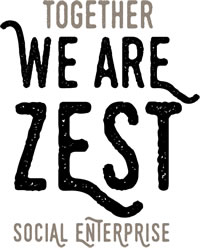How mandatory work placements for the ‘economically inactive’ risk failing
While I applaud the sentiment of helping disabled people who wish to work into meaningful employment – because that’s the Mission and Purpose of the social enterprise I created – this announcement loses any semblance of support with the introduction of sanctions and threat.
It feels as if this plan has been created solely from an economic view of moving the “economically inactive” towards being considered active, good tax-paying citizens who will help the UK to achieve growth and a nice pre-General Election headline rather than actual concern for people’s wellbeing. Let’s hope the focus will be on support rather than punishment.
The main aspect of this that caught my attention was the “mandatory work placement trials.” The DWP, through Job Centres, have run work placements now for many years. In fact, the DWP along with Fife Council Supported Employment, FEAT, and the Scottish Prison Service have worked with us at Zest for many years – with our team providing the placement training and support for those who need a little extra help into work.
Fife Council in particular includes support for disabled people and this has been a key part of its economic strategy for many years. It’s not new. But it’s been reported in the context of the huge increase in people becoming economically inactive.
We’ve also just come through huge waves of Covid infections, which left many people suffering from Long Covid, myself included, who now struggle to work.
This raises the questions – was this increase in disabled people in part created by the UK Government’s own policies and slow reaction to Covid? How many people are unable to work due to long hospital waiting lists which can be around 18 months?
My first thought about this announcement was – ‘Who is going to be running, monitoring, and reviewing these work placements?’ Do they have employers on board already? Do they know how to do work placements? Or are people just going to be popped out to employers without the skills to produce good outcomes for these people, and with the possibility of vulnerable people being taken advantage of?
It sounds easy, doesn’t it, taking a person for a few weeks on a work placement. Show them what to do, then they can just get a job.
We’ve been doing placements for years at Zest, learning and developing as we go. Those skills don’t appear overnight. It takes time to train your team coaching skills, to notice the signs when a disabled person is getting overwhelmed (it’s not always obvious to you or the person) and how to adapt their tasks or the job role to suit their abilities and learning style.
As an employer you need to feel comfortable with having uncomfortable conversations, not be scared to try out disability adjustments or having the fear of getting it wrong, not supporting the person properly or not knowing enough about their condition/s.
The best person to advise on their disability and needs is the person themselves. But often they’re not as involved in the conversation as they should be.
The other big factor in achieving positive outcomes is culture. This is the thing that happens when you’re not looking and becomes ‘How we do things round here.’
It’s formed by the norms in a workplace and what behaviours are accepted and promoted. While it would be nice to think most workplaces have an open, transparent, and supportive culture, we know this often isn’t the case.
So how motivated and supported do you think a work placement, already living with barriers and anxious about returning to work will feel if they’re put into an environment where a bad culture is rife?
Will those people feel confident or able to work if they experience or see bullying, harassment, or passive aggression from co-workers?
How will this be checked because behaviours like passive aggression are difficult to spot from the outside, and often hidden in humour using sarcasm as an excuse, but still cut like a knife when you are the target.
Then there are the attitudinal barriers which can be created through lack of understanding. The Social Model of Disability has been widely accepted as good practice for many years. This takes the view that barriers are created by a failure of society to adapt to help those with impairments and focuses on solving problems in the environment/society, as opposed to trying to fix the person – squash a square peg into a round hole!
How many people who don’t regularly work in a social care setting understand this though? For example, at Zest many of our team struggle with writing/spelling/grammar due to issues like dyslexia, learning difficulties etc. We could have those nice blackboards you see in cafes, updated daily with specials etc, but those pose a big problem for some of the team, can lead to ridicule by customers if they get it wrong, or not be legible.
We could force the team to write on them, take the rude comments when there are spelling mistakes and increase their anxiety by making them do this small task. But we wouldn’t. Instead, we change the environment and task to fit them.
Our solution is pre-printed labels which just Velcro onto the board – reducing their anxiety, reducing time wasted through fixing mistakes and reducing negative feedback from customers – which benefits the disabled people and the business – win-win-win!
It sounds simple, but just knowing to find the solution by altering the task and not focusing on fixing the person isn’t always obvious.
We’ll have to wait and see what plans have been put in place by the DWP – if this policy has been thought through and what support there’ll be for employers to ensure they’re able to provide quality work placements that are monitored, reviewed, and provide good outcomes for those taking part.

